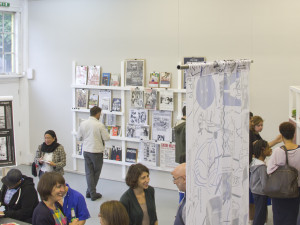
Contours of Resilience
Thursday 12 December 2013, 7pm
The Rwandan philosopher Sylvestre Nzahabwanayo presents a lecture on one of the burning questions of political philosophy: how are regimes founded? What brings them into being and sustains them over time?
This question seeks to establish whether political institutions are created by reflection and choice or are always the product of accident, circumstance, custom, and history? Applied to Rwanda, these questions become more meaningful.
Today, Rwanda is determined to make politics a matter of choice and reflection. This new move is in sharp contrast with the politics that led to the Genocide of 1994, a politics fundamentally driven by divisionism and discrimination. Currently, Rwandans are wholeheartedly set to rebuild all sectors of life. This resilience revolves mainly around four major pillars: good governance, justice, economic development and social welfare.
This presentation is meant to explore the contours of such resilience despite serious challenges pertaining thereto. The purpose of Nzahabwanayo’s talk is to unveil the prevailing tension in Rwanda politics between the ideal and the real, the ‘ought’ and the ‘is’, the virtuous and the practical.
Sylvestre Nzahabwanayo lives and works in Rwanda, where he is a lecturer at the Kigali Institute of Education.
This event is organised by artist Christian Nyampeta as part of his ongoing research on the subject of How To Live Together. Nyampeta is currently developing a forthcoming project at The Showroom as part of the programme Communal Knowledge.
Contours of Resilience is held in conjunction with Nzahabwanayo’s seminar at Goldsmiths organised by Jean-Paul Martinon, at the Department of Visual Cultures.



